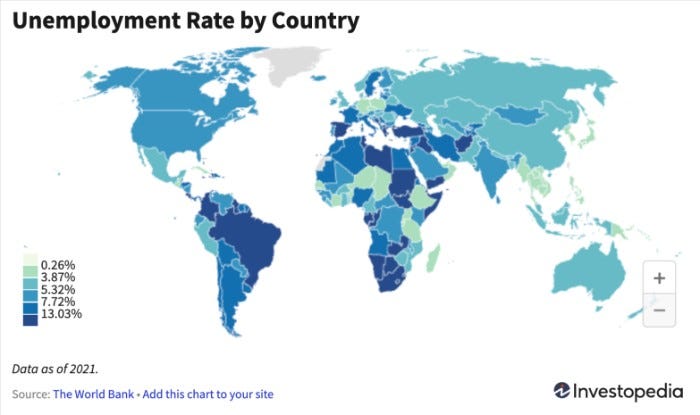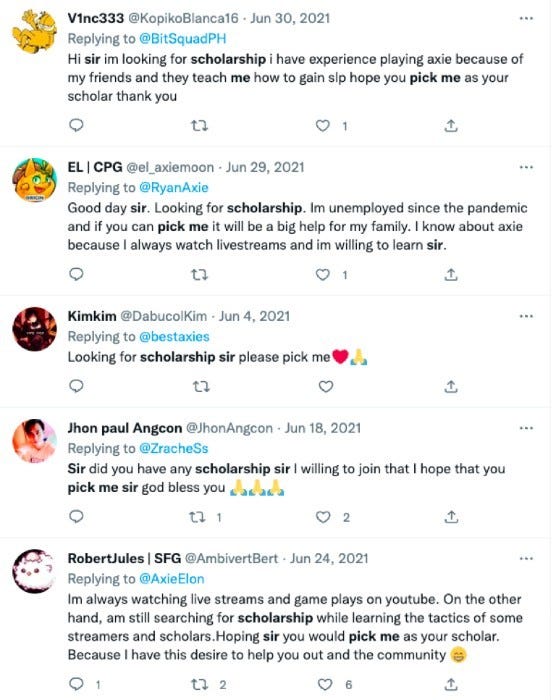The Foundation Of The Economy Is...
Working from home has become the new norm for many people around the world. The pandemic has forced office workers to adjust to a new way of working, but it has also created opportunities for those who are looking for more flexible job options.
In a good way, as more companies around the world have now redesigned more jobs to be remote-friendly, that also means that there are more job opportunities available across various industries, at different levels.
Blockchain technology will fuel this re-globalisation of jobs, and will help businesses become more cost-efficient, and also allow them to make a wider social impact.
Imbalanced Recovery
COVID has changed the way we live and work, and while many of us have been lucky enough to recover from the effects of the pandemic, there are still a lot of capable people in developing nations who have not - and may never will.
The pandemic has highlighted the deep social and economic inequalities that exist in our world today.
While some people have been able to work from home and continue to earn a good income, others have lost their jobs or had their hours reduced.
This has led to an imbalanced recovery, where the ones with socioeconomic status benefit from the new stage of growth, while those in the lower rungs continue to suffer.
According to the world bank, the highest and lowest unemployment rates in the world vary dramatically. Even in the world's largest economies.
Play2Earn - Equalisation of Work Opportunities
At the height of the COVID-19 pandemic in 2021 and the boom of the crypto market, a new economic model surfaced. Axie Infinity, a play-to-earn (P2E) game, changed millions of lives by letting anybody play a game, to earn real money.
The game was designed in a way that anybody, regardless of their location or economic status, could play and earn a living. This allowed people from all walks of life to have an equal opportunity to work and earn an income.
The game quickly became popular, with millions of players worldwide, and Axie Infinity soon became an inspiration to more P2E games. Investors started pouring money into this new money-making opportunity, and that fuelled the birth of a new economy.
The Crash That Displaced Millions
In May 2022, the Luna crash triggered a liquidity flight across all Web3 projects, including the P2E games that were providing income to the labour workforce who were playing these games to earn a living.
At that time, it felt as though it was one step forward, two steps back for all stakeholders in the space, and that instead of an evolutionary new way to earn a living, P2E caused a regression in many people's lives. Especially those who reinvested their earnings back into the projects.
Despite what happened to the markets, I believe that foundations do not change. Axie and the other P2E projects have shown the world that it is possible to organise a workforce globally and incentivise them to perform some form of labour in exchange for money.
Elon Musk was quoted as saying that the foundation of the economy is labour, and it is also the fundamental constraint. Companies need workers, and workers need jobs.
The millions of ex-Axie Infinity "scholars" (aka players/labourers) still have the drive, willingness and ability to perform tasks online, in exchange for money. But this workforce has been long forgotten by the guilds, VCs and crypto investors.
In Conclusion
The rise of cryptocurrency and P2E games has led to a more balanced economic recovery post-COVID, where anybody can play a game and earn real money. This new economic model has helped millions of people who were affected by the COVID-19 pandemic and has resulted in a more equal stage of growth.
While the first iteration wasn’t sustainable, P2E has inspired more X-to-earn projects (move-to-earn, learn-to-earn, etc.) and this wave of new earning opportunities on the blockchain will only expand with time.
Companies around the world are thinking of how they can incorporate blockchain technology within their business. While many Web3 projects are creating many technologically-advanced ways to "bring them into Web3", the surest way to do this at scale is to address the fundamental constraint faced by all businesses.
Labour.
— FS



